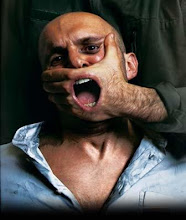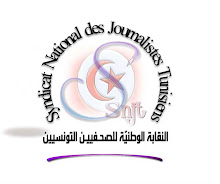Surprises force delay in lawsuit against Tunisian Internet Agency
05/11/2008
New developments caused a Tunis court to suspend hearings in the censorship case brought by journalist Ziad El Heni against the Tunisian Internet Agency.
By Jamel Arfaoui for Magharebia in Tunis – 05/11/08
 [File] Many Tunisian bloggers dubbed November 4th a "national day for the freedom of blogging", in support of a censorship lawsuit filed by journalist Ziad El Heni. |
After just one day, hearings have been postponed in the censorship lawsuit mounted by journalist and blogger Ziad El Heni against the Tunisian Internet Agency (ATI). The move follows some recent developments that could change the nature of the case.
The third circuit court in the district of Tunis announced the decision on Tuesday (November 4th) after the Tunisian Union of Free Radio Stations and the Unionist Freedoms and Rights Observatory joined El Heni in the lawsuit and called Tunisian President Zine El Abidine Ben Ali to testify.
The hearings are scheduled to recommence on November 18th.
"Calling on the head of state to give his testimony in the lawsuit conforms to the law," El Heni told Magharebia following the decision.
"He himself saw how the Facebook website had been blocked and ordered it re-opened," he continued. "Therefore, his testimony would be decisive in revealing who ordered the ban of this website and who carried it out. Then we can hold those people accountable."
Many internet users were surprised by the government's August 18th blocking of popular social networking website Facebook; the ban was subsequently lifted on September 2nd at Ben Ali's request.
Legal experts were reluctant to comment on the call for the president's testimony. Lawyer Lazhar Akremi told Magharebia: "It is wise and rational to just ignore this matter because it is not serious at all."
Kamel Ben Younes, head of the National Union of Tunisian Journalists' Freedoms Committee, sent El Heni a direct message criticising the move.
"I think that issuing such provocative and sensational messages that attack the symbols of the state doesn't help the freedom of expression and blogging," he said. "On the contrary, it would have a completely adverse effect... [t]his is just the making of personal battles and imaginary heroism by pseudo-journalists and pseudo-human rights activists."
According to Ben Younes, the role of the union is not to pursue personal goals but to improve the conditions of the profession and the freedom of thought and expression within the scope of the law.
According to El Heni, his lawsuit against ATI has won the support of 653 bloggers, who dubbed November 4th a "national day for the freedom of blogging" and created a special website for the cause.
Blogger Moiz Ben Gharbia designed a logo and Asdrubal created a flash video to promote the campaign. The latter also made a video showing how to create alternative blogs to circumvent official bans.
In the last few weeks, Ziad El Heni's blog has been intermittently unavailable to readers. "My blog was blocked after I published the 2008 Reporters Without Borders ranking of press freedom in the world," he said.
"I had to create an alternative website. I decided to answer the challenge of electronic censorship with a challenge of my own; I won't sue them, but I'll re-open the website when they block it. So far, censors have blocked my website two times and I was able to re-open it. This is a battle for establishing the rights of citizens, to which I go armed with the values of the republic and the law," El Heni concluded.
Last week, an anonymous Tunisian official told Reuters the government places no restrictions on the freedom of opinion and expression. "The state has taken steps to boost political and media pluralism, and to enhance the freedom of the press," the source said, citing the "publication and distribution of opposition parties' newspapers and the financial support they receive from the state without any restrictions on their opinions and positions."
The official said the government does draw a line, however: "[E]xploitation of the internet to incite extremism, terrorism and immoral practices constitutes a violation of the country's law and is not part of the freedom of expression."























Aucun commentaire:
Enregistrer un commentaire